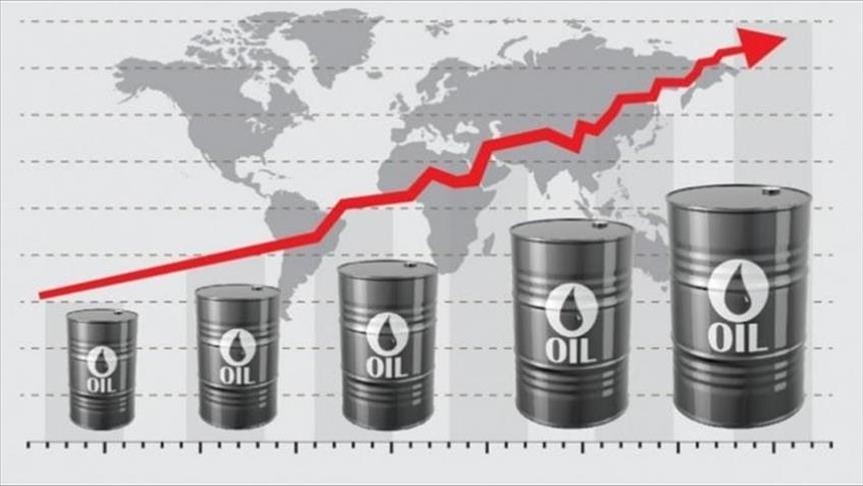KATHMANDU: The unofficial war between Iran and Israel in the Middle East has triggered a sharp rise in crude oil prices, causing ripple effects across global markets and raising concerns about the impact on Nepal’s fragile economy. As geopolitical tensions escalate in the region, crude oil prices surged by 9% last week, marking the highest weekly growth in the past year. This price hike has alarmed energy-sensitive nations worldwide, with Nepal, heavily dependent on Indian fuel imports, facing potential inflationary pressures.
Middle East Tensions Drive Crude Oil Price Hike
The recent rise in oil prices is largely attributed to attacks by Iran on Israel and the subsequent threats of retaliation by Israel. Although Israel has yet to launch a counterattack, fears of further escalation loom. Global stakeholders are urging Israel to refrain from targeting Iran’s oil infrastructure, as any strike on petroleum production facilities could drastically disrupt the global supply chain.
India, one of the largest fuel importers from the Middle East, is particularly vulnerable to this conflict. More than half of its fuel imports rely on supply routes through the region. If the situation intensifies and Iran becomes directly involved in the conflict, these routes could be disrupted, driving up fuel costs for India.
Direct Impact on Nepal’s Economy
As Nepal imports its entire fuel supply from India, any hike in fuel prices in India will have a direct and immediate impact on the Nepali economy. Nepal Oil Corporation (NOC) will be forced to pass on these increased costs to Nepali consumers, likely leading to higher prices at fuel pumps and a rise in transportation costs across the country. The transportation sector, a major driver of inflation in Nepal, will see a surge in costs, affecting everything from goods distribution to public transportation fares.
The fuel price increase could also trigger a chain reaction across various sectors of Nepal’s economy. Higher transportation costs will lead to increased prices for essential goods, food, and raw materials, intensifying inflation. Nepal’s industrial sector, which heavily relies on fuel for production and logistics, will also face rising operational costs, potentially leading to job cuts and reduced economic activity.
Inflationary Pressure Amid Economic Struggles
Nepal’s economy, which is still struggling to recover from the effects of the recent global slowdown, is now staring at another looming crisis. As inflation rises due to higher fuel prices, household spending will be squeezed, reducing consumer demand and slowing economic growth. The agricultural sector, a backbone of Nepal’s economy, will be particularly hard hit, as the cost of transportation for agricultural products will rise, affecting farmers’ incomes and the overall food supply chain.
Additionally, construction projects, many of which rely on fuel for machinery and transportation, may face delays or higher costs, impacting the country’s infrastructure development plans. With ongoing recovery efforts from the pandemic-induced economic downturn, this new challenge could further delay Nepal’s economic recovery.
Global Shipping Routes at Risk
The ongoing conflict could also affect global shipping routes, particularly in the Middle East, where many international oil shipments pass through. If these routes are disrupted, the cost of importing not only oil but also other essential goods will rise. This could further strain Nepal’s import-reliant economy, exacerbating the current account deficit and weakening the Nepalese rupee.
As nearly 70% of Nepal’s trade is conducted with India, any increase in costs due to fuel price hikes will be immediately felt in Nepal. Rising oil prices in India will make Nepali imports more expensive, contributing to inflationary pressures and potentially pushing the economy toward further instability.
Concerns Over Long-Term Economic Impact
Economists warn that if the Iran-Israel conflict intensifies, Nepal could face prolonged inflation, which would affect government revenues, household incomes, and foreign investment. With a weak domestic production base and a heavy reliance on imports, the country is particularly vulnerable to external shocks.
To mitigate the impact, the government will need to closely monitor the situation in the Middle East, explore alternative energy strategies, and possibly look into diversifying fuel import sources to safeguard the nation from further economic shocks.
As the world watches the unfolding conflict in the Middle East, Nepal braces for the economic consequences of rising oil prices, hoping that the geopolitical tensions do not spiral into a full-blown crisis.

